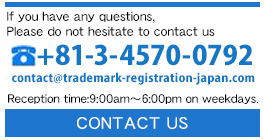A Fundamental Guide to Use Trademark Fairly
Trademark and intellectual property law can at times be very complicated, time-consuming, and costly to challenge in the court. With the rising number of intellectual property lawsuits being registered, as well as the increasing pace of new trademark, patent, and copyright registrations, small businesses must be more careful than before when it comes to registering a trademark successfully.
A trademark attorney Perry Clegg, who is the founder of TrademarkAccess.com, a law firm which practices US Trademark and IP Law says that small business can easily be involved in a trademark case without even knowing that they have violated a trademark, and they may be totally innocent in the matter. He also explains that it is ever more important that small business also perform a comprehensive trademark searches before starting business under any name.
However, under the four different situations unauthorized use of another trademark will may be permitted, irrespective of ownership. These include:
In a descriptive sense – A noted example of this type of fair use can be found in a lawsuit registered by two competing lipstick brand, where one of them trademarked the phrase ‘Sealed with a Kiss’ and the other one started an advertising campaign using the phrase ‘Seal it with a Kiss’. The courts maintained that the latter was simply inviting customers to test the durability of their product in a descriptive sense, and therefore was not a violation of trademark rights.
As a reference – A second type of fair use is when you exercise a trademark as a specific reference to the owner of the mark, or their goods or services. Though individuals are always allowed to use trademarks in this way, the consent ends at source identification, and if the entity disregards this and involve in any kind of sponsorship or endorsement, these are regarded as trademark infringement.
After the first sale – Courts have repeatedly ruled that under the ‘first sale’ doctrine, resale of unadulterated and genuine goods will not come under trademark infringement. This means that once the goods are sold from an initial manufacturer, any reseller or retailer can advertise the nature of any true trademark it may have.
For comparative purposes – Under this type of fair use of trademark, any company was directly advertise their goods and directly compares the relative qualities of competing goods and services, except that the facts should not be false or misleading. For instance, Toyota can make car advertisements which compares the features of rivalling Honda models.
So the basis rule is that you can use the trademark of other business entities as long as you are not using them to create confusion between your goods/services and the other person’s goods/services. However, there are always risks of infringing into the trademark rights of the other person, so you should get adequate legal opinion before doing so.
Trademark Registration in Japan
Patent Attorney:Hiroshi Oogai
Address:304 BUREX Hirakawacho 1-5-15 Hirakawa-cho,
Chiyoda-ku, Tokyo
Phone:+81-3-4570-0792
Mail:contact @ trademark-registration-japan.com









